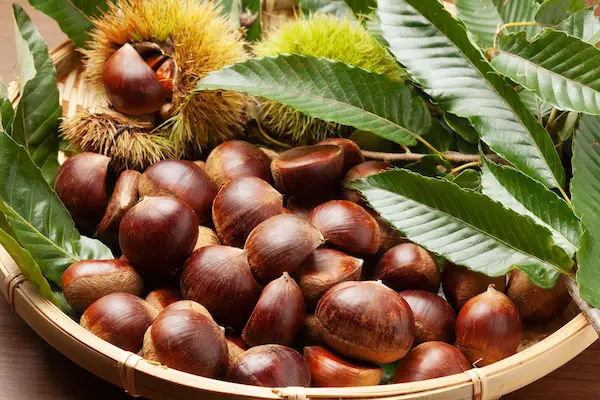Surprising Health Benefits of Papaya Seeds and How to Use Them
Curious about the benefits of papaya seeds? Discover how they may support digestive health, what “natural detox” really means, safe ways to use them, and who should avoid them.

Written by Dr. Mohammed Kamran
Reviewed by Dr. Rohinipriyanka Pondugula MBBS
Last updated on 11th Nov, 2025

Introduction: Why Papaya Seeds Are Trending—and What the Science Says
If you enjoy sweet, sunny papaya, you’ve probably scooped out the black, peppery seeds and tossed them away. Lately, though, people have begun asking whether those seeds are good for you. You’ll find bold claims online—papaya seeds for digestive health, promises of a “natural detox,” and even talk of anti-parasitic effects. But what’s real and what’s hype?
Here’s a clear, science-informed guide you can trust. We’ll explain what papaya seeds might offer, how to use them safely, and where they fit into a balanced routine. You’ll also learn why “natural detox” doesn’t mean what many think it does, and when papaya seeds are not a good idea.
Consult a Top Nutritionist for Personalised Advice
What Are Papaya Seeds?
Papaya seeds are the small, round, glossy-black seeds nestled inside the fruit. They have a peppery, slightly bitter taste and a crunchy texture. In many cuisines, dried and ground papaya seeds are used as a spice, similar to black pepper, adding bite to dressings, marinades, and rubs.
Nutritionally, papaya seeds are not typically eaten in large amounts, but they do provide:
- Fibre, which supports regularity and gut health as part of an overall fibre-rich diet
- Plant compounds (such as polyphenols) with antioxidant properties, found in many seeds and fruits
- Fats (including monounsaturated fats) in small culinary amounts, when used as a spice
Evidence-Based Papaya Seeds Benefits
There are promising areas of research on papaya seeds, but it’s important to keep perspective: most studies are small, preliminary, or lab-based. Still, thoughtful use of the seeds as a condiment can fit into a balanced diet.
Digestive Health: Small Support, Big Picture
Fibre for gut regularity: Even small amounts of added fibre can contribute to bowel regularity as part of an overall fibre-rich eating pattern with fruits, vegetables, whole grains, legumes, nuts, and seeds. Papaya seeds, used as a spice, add only modest fibre—but every bit helps when combined with a diet that supports digestive health.
- Antimicrobial potential (early data): Laboratory studies have found that papaya seed extracts can inhibit certain microbes in test settings. This is interesting, but lab effects don’t always translate to the same effects in people. For digestive health, your best-proven tools remain fibre, hydration, routine physical activity, and evidence-based medical care when needed.
- A quick note on enzymes: The papaya fruit contains the enzyme papain, particularly in its unripe latex. Papaya seeds themselves are not a go-to source for digestive enzymes in routine diets. If you see claims that papaya seeds are a powerful digestive enzyme supplement, that’s an overstatement.
Antioxidant Properties: A Helpful Bonus
Like many plant foods, papaya seeds contain polyphenols and other phytochemicals with antioxidant activity, especially when studied in extracts. Antioxidants help counter oxidative stress in the body. The practical takeaway: use papaya seeds as one small part of a plant-forward diet rich in colourful fruits and vegetables, whole grains, nuts, and legumes. No single food or seed can replace an overall healthy pattern.
Possible Anti-Parasitic Effects: What We Know (and Don’t)
You may have seen headlines or social posts claiming papaya seeds “kill parasites.” Here’s a balanced view:
- Some small human studies and older reports suggest that preparations containing papaya seeds may help reduce certain intestinal parasites. However, evidence is limited and not strong enough to recommend papaya seeds as a treatment.
- Public health and infectious disease experts emphasise proven approaches for parasitic infections: proper diagnosis and prescription medications when needed, along with prevention (hand hygiene, safe water, food safety, and sanitation). In other words, papaya seeds should not replace medical care for suspected parasites.
If you have symptoms like persistent diarrhoea, abdominal pain, weight loss, or visible worms, see a clinician for testing and evidence-based treatment.
Natural Detox: What It Really Means—and How Papaya Seeds Fit
“Natural detox” appears everywhere online, often with promises that a single food or cleanse can “flush toxins.” Here’s what science and medical experts actually say:
- Your body already has a robust detox system. The liver, kidneys, lungs, skin, and gut work around the clock to process and remove by-products and environmental exposures.
- There’s no solid evidence that detox diets or “cleanses” outperform your body’s own systems. Extreme cleanses can even be risky.
- What helps your body’s natural detox pathways? Balanced nutrition, adequate fibre and fluids, regular physical activity, sufficient sleep, managing alcohol intake, and not smoking.
- Where papaya seeds fit: As a peppery, high-fibre garnish or spice, papaya seeds can be part of an overall healthy pattern. They do not “detox” your body by themselves, and more is not better.
How to Use Papaya Seeds Safely?
Taste and Preparation
- Flavour: Peppery, slightly bitter, and aromatic.
- Fresh use: Scoop seeds from a ripe papaya, rinse, and pat dry.
- Drying: Spread seeds on a baking sheet and air-dry for several days, or dry them in a low oven (below 150–170°F/65–75°C) until hard and brittle. Store in a sealed jar away from heat and light.
- Grinding: Use a pepper mill or spice grinder to create a coarse “papaya pepper.”
Easy Ways to Add Small Amounts
- Salad dressing: Grind ½ to 1 teaspoon of dried papaya seeds and whisk into olive oil, lemon or lime juice, a touch of honey, salt, and garlic.
- Marinade: Combine crushed papaya seeds with olive oil, citrus, herbs, and a pinch of salt for poultry or tofu.
- Avocado toast topper: Sprinkle a small pinch for a peppery bite.
- Smoothie accent: Blend a few fresh seeds with tropical fruits and yoghurt if you like a bitter-peppery edge. Start with 3–5 seeds to test your taste, then adjust.
- Spice rub: Mix ground papaya seeds with black pepper, coriander, and smoked paprika for a zesty rub.
How Much Is Reasonable?
There’s no official serving size or standardised “dose” for papaya seeds. Because human research is limited and the seeds are pungent, use culinary amounts:
- Start small: ¼ to ½ teaspoon of dried, ground seeds, or a few fresh seeds.
- See how you feel: Some people find the taste intense or experience stomach upset if they overdo it.
- Think variety: Rotate with other spices and seeds (black pepper, mustard seed, cumin, sesame, chia, flax) for flavour and a broader nutrient mix.
Safety, Side Effects, and Who Should Avoid Papaya Seeds
As with any concentrated plant part, a little can go a long way. Keep these cautions in mind:
- Pregnancy and breastfeeding: Avoid papaya seeds. Safety data are lacking, and unripe papaya (not the ripe fruit) is known to contain latex/papain that can be problematic. Until better evidence is available, it’s best to skip the seeds during pregnancy and while breastfeeding.
- Allergy and latex-fruit cross-reactivity: People with latex allergy can react to certain fruits, including papaya, due to cross-reactive proteins. If you have a known latex allergy—or have reacted to banana, avocado, kiwi, or chestnut—talk to your clinician before trying papaya or its seeds. Stop immediately if you notice itching, swelling, hives, or breathing difficulty, and seek care.
- Digestive sensitivity: Because the seeds are peppery and slightly bitter, larger amounts may irritate a sensitive stomach. Start with tiny amounts, especially if you have reflux, gastritis, or ulcers. Discontinue if you feel discomfort.
- Children: Whole seeds can be a choking hazard. Evidence on safe amounts for children is limited. Avoid giving papaya seeds to young children.
- Medications and conditions: If you take prescription medicines (especially blood thinners or liver-affecting drugs), have chronic liver or kidney disease, or are scheduled for surgery, discuss new supplements or unusual spices with your clinician. Normal culinary use is generally low-risk, but high-dose extracts are a different story and should be avoided outside medical guidance.
Buying, Storing, and Food Safety Tips
- Choose ripe fruit: Look for papayas that yield slightly under gentle pressure and have yellow-orange skin.
- Rinse and dry thoroughly: If you plan to keep the seeds, rinse off pulp and dry well to prevent mould.
- Storage: Keep dried seeds in a sealed jar in a cool, dark cupboard for several months. Discard if you notice off smells, visible mould, or rancidity.
- Cleanliness: Wash hands, knives, and cutting boards before and after handling fresh produce to reduce the risk of contamination.
How Papaya Seeds Compare with Other Functional Seeds?
- Versus flax or chia: Flax and chia are established sources of fibre and omega-3 fats with strong evidence for heart and digestive support when used regularly in measured amounts. Papaya seeds are more of a culinary accent with emerging evidence.
- Versus black pepper: Papaya seeds can stand in for pepper, offering a similar pungent note. Rotating the two can keep flavours fresh without over-relying on one spice.
Conclusion
Papaya seeds’ benefits are promising but modest in everyday culinary quantities. Think of them as a flavourful garnish that fits into a fibre-rich diet supporting digestive health—not as a cure-all. “Natural detox” is best achieved by supporting the body’s own organs with a balanced lifestyle. No seed can replace that. If you’re curious, start with tiny amounts of ground, dried seeds as a pepper substitute and see how you like the flavour. Avoid if you’re pregnant, breastfeeding, have a latex allergy, or have a sensitive stomach. For any concerning symptoms—especially those suggesting infection or digestive disease—see a clinician for testing and evidence-based care.
Consult a Top Nutritionist for Personalised Advice
Consult a Top Nutritionist for Personalised Advice

Ms. Sushma Jaiswal
Dietician
42 Years • M.Sc.(Food & Nutrition)
Bengaluru
Swasthya Nutrition, Bengaluru

Ms. Neelanjana J
Dietician
5 Years • Bsc., Msc. Nutrition and Dietetics specialised general weight management, PCOS/PCOD weight loss and Diabetes management. A clinical dietitian with 4+ year experience specializing in evidence-based, result-oriented nutrition therapy. I have extensive experience in weight loss, thyroid management, PCOD/PCOS, weight gain, and diabetes & prediabetes care. My approach is personalized, practical, and sustainable—focusing on helping individuals achieve long-term lifestyle change rather than quick fixes. I work closely with clients to understand their medical history, lifestyle, and goals, and then design customized diet plans that support hormonal balance, metabolic health, and overall wellbeing. My goal is to make nutrition simple, realistic, and effective—so you see measurable results and feel your healthiest self.Auther in Health benefits of jackfruit (Artocarpus heterophyllus Lam.) seeds: A review (2023) The Pharma Innovation Journal Co- Auther in Malnutrition in Women: A review (2023) The Pharma Innovation Journal. Highfield Level 3 in HACCP. Highfield Level 4 International Award in Food Safety Managment
Bengaluru
Apollo Clinic, JP nagar, Bengaluru

Ms. Soma Saha
clinical nutrition
17 Years • B.Sc. - Home Science (Food & Nutrition), M.Sc. - Home Science (Food & Nutrition)
Kolkata
Dr Utsa Basu Clinic, Kolkata
(50+ Patients)

Ms. Samapti Maity
Dietician
16 Years • MSc. (Clinical Nutrition & Dietitics), NDEP, Course in Maternal Infant Young Child Nutrition.Diploma in Sports Nutrition, Diploma in Diabetic educator, FODMAP Specialist
Kolkata
BIENETRE CLINIC, Kolkata

Ms Mohanapriya J
clinical nutrition
12 Years • MSc Clinical Nutrition
Chennai
Apollo Sugar Clinics , Greams Road, Chennai
Consult a Top Nutritionist for Personalised Advice

Ms. Sushma Jaiswal
Dietician
42 Years • M.Sc.(Food & Nutrition)
Bengaluru
Swasthya Nutrition, Bengaluru

Ms. Neelanjana J
Dietician
5 Years • Bsc., Msc. Nutrition and Dietetics specialised general weight management, PCOS/PCOD weight loss and Diabetes management. A clinical dietitian with 4+ year experience specializing in evidence-based, result-oriented nutrition therapy. I have extensive experience in weight loss, thyroid management, PCOD/PCOS, weight gain, and diabetes & prediabetes care. My approach is personalized, practical, and sustainable—focusing on helping individuals achieve long-term lifestyle change rather than quick fixes. I work closely with clients to understand their medical history, lifestyle, and goals, and then design customized diet plans that support hormonal balance, metabolic health, and overall wellbeing. My goal is to make nutrition simple, realistic, and effective—so you see measurable results and feel your healthiest self.Auther in Health benefits of jackfruit (Artocarpus heterophyllus Lam.) seeds: A review (2023) The Pharma Innovation Journal Co- Auther in Malnutrition in Women: A review (2023) The Pharma Innovation Journal. Highfield Level 3 in HACCP. Highfield Level 4 International Award in Food Safety Managment
Bengaluru
Apollo Clinic, JP nagar, Bengaluru

Ms. Soma Saha
clinical nutrition
17 Years • B.Sc. - Home Science (Food & Nutrition), M.Sc. - Home Science (Food & Nutrition)
Kolkata
Dr Utsa Basu Clinic, Kolkata
(50+ Patients)

Ms. Samapti Maity
Dietician
16 Years • MSc. (Clinical Nutrition & Dietitics), NDEP, Course in Maternal Infant Young Child Nutrition.Diploma in Sports Nutrition, Diploma in Diabetic educator, FODMAP Specialist
Kolkata
BIENETRE CLINIC, Kolkata

Ms Mohanapriya J
clinical nutrition
12 Years • MSc Clinical Nutrition
Chennai
Apollo Sugar Clinics , Greams Road, Chennai
More articles from General Medical Consultation
Frequently Asked Questions
Can papaya seeds kill parasites?
Some small studies suggest papaya seed preparations may help reduce certain intestinal parasites, but the evidence is limited and not strong enough to recommend them as treatment. If you suspect a parasite (for example, persistent diarrhoea, abdominal pain, or unexplained weight loss), see a clinician for testing and prescription medication. Follow hygiene, safe water, and food safety guidance.
Are papaya seeds good for digestive health?
In small amounts, papaya seeds can contribute a little fibre and fit into a balanced diet that supports gut regularity. However, they’re not a primary source of fibre or digestive enzymes. Focus on overall fibre intake, hydration, physical activity, and medical advice for persistent symptoms.
How many papaya seeds can I eat a day?
There’s no official recommended amount. Because research is limited, treat them as a spice: start with ¼ to ½ teaspoon of dried, ground seeds (or just a few fresh seeds), and see how you tolerate them. Avoid if pregnant, breastfeeding, allergic to latex-related fruits, or if you have a sensitive stomach.
Are papaya seeds safe during pregnancy?
It’s best to avoid papaya seeds during pregnancy and while breastfeeding, since safety data are lacking. Unripe papaya contains latex/papain and is not recommended. Stick with well-washed, ripe papaya fruit in normal amounts and skip the seeds.
Can I grind papaya seeds and use them like black pepper?
Yes. Dried papaya seeds can be ground and used as a peppery spice in dressings, marinades, and rubs. Start with a small pinch or up to ½ teaspoon, as the flavour is pungent. Store dried, ground seeds in a sealed container away from heat and light.




